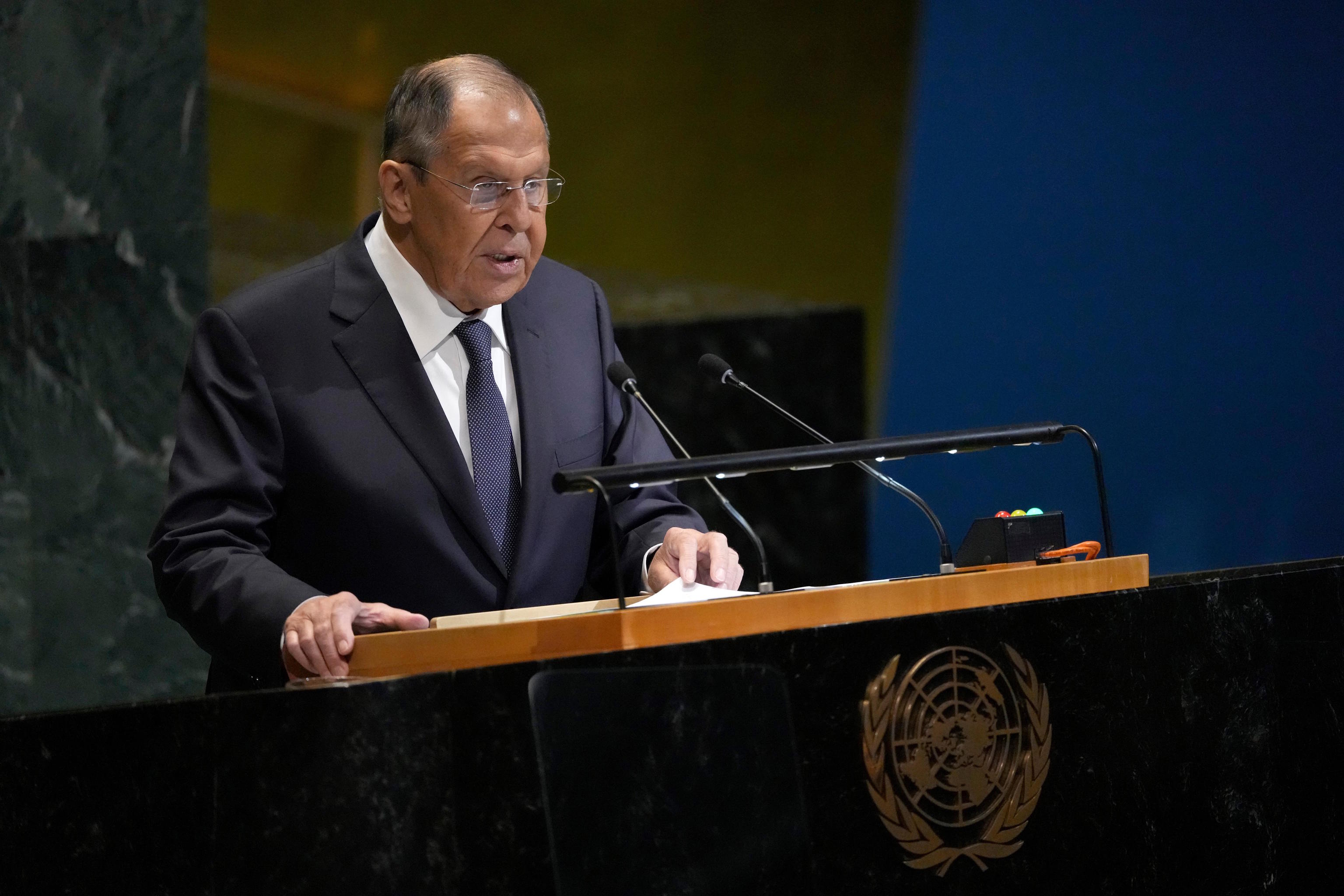After violating Polish airspace with armed drones, and that of the Baltic countries with combat aircraft. After a cyberattack that forced flight cancellations for several days in the center of the continent, and Denmark or the Netherlands having to close their capital's airports due to the presence of unidentified drones, Moscow says it is neither provoking nor planning to clash with the Atlantic Alliance nor are the rumors of an imminent conflict true. But if the West responds, for example, by shooting down manned aircraft entering its territory, as Poland has warned and endorsed by Donald Trump, it will respond decisively.
This is the message that Russian Foreign Minister Sergey Lavrov delivered on Saturday at the UN, before an almost empty audience with the world's leaders already out of New York. His speech, true to his style and to what Russia has been repeating for years, if not decades, did not bring major news, but did provide good doses of cynicism. Today, just like on Friday, Lavrov stated that "we need a new world order where colonialism is not the driving force. Where wars are not declared for colonial reasons," stating that the annexation of Crimea a decade ago was the result of "a coup driven by the West" in Ukraine and blaming the "neo-Nazi regime in Kiev."
Russia has condemned Israel's actions in Gaza, the embargo on Cuba, the US bombing in Iran, and the pressures on Serbia in the Balkans. But above all, it has issued a warning. "Threats of the use of force against Russia are becoming increasingly common. Russia is accused of planning an attack against NATO and EU countries, but President Putin has repeatedly debunked these false provocations. Russia has never had and does not have such intentions, but any aggression against my country will receive a decisive response, leaving no doubt among NATO and EU members, who only tell their voters that war with Russia is inevitable and talk about preparations to attack Kaliningrad and other Russian territories," he stated.
Since 2022, Putin has been pushing boundaries, testing when and how allies respond. And since earlier this year, observing how the United States under Donald Trump reacts. "We are willing to negotiate security guarantees for Ukraine, but neither Kiev nor its European allies seem to understand the seriousness of the situation. They also do not want to negotiate sincerely. The North Atlantic Alliance continues to expand to our borders, contrary to the assurances given to Soviet leaders that they would not advance an inch. Our proposals in 2008 and subsequent ones, including in December 2021, were ignored and continue to be ignored to this day," he added.
Lavrov's intervention did not deviate from Russian rhetoric, even Soviet, speaking of colonization, double standards. "There are serious violations of the principle of the sovereign equality of states, and this undermines faith in justice itself, generating crises and conflicts. The root of the problem lies in attempts to divide the world between democracy and authoritarianism, between those sitting at the table and those on the menu, the chosen ones who can do as they please and the rest," he pointed out, mentioning how NATO bombed Libya, "Israel's illegal force against the Palestinians, and aggressive actions against Iran, Qatar, Lebanon, Syria, or Iraq could lead to a conflagration in the Middle East."
In a press conference following his speech, the Russian minister reiterated, addressing the violations of the airspace of several EU and NATO countries in recent weeks, that his country has "nothing to hide. We never attack civilians or infrastructure. Incidents happen, but we never selectively target them, we have never attacked European countries with our unmanned aerial vehicles or missiles, whether they are EU or NATO members," he emphasized, complaining that after Poland and its allies shot down their drones on the night of September 9, "we proposed an immediate meeting, but no one wants to discuss the facts."
Similarly, he reproached the United States for its position, which seems to have changed in recent weeks, with a tone apparently more aligned with Kiev and critical of Moscow, but at the same time suggesting Donald Trump's willingness to disengage from the process to achieve peace. "We expected a Russian-American dialogue after the summit in Alaska, as the new US Administration approached in a way that contributes to a realistic solution to the Ukrainian crisis. We also sought pragmatic cooperation without an ideological stance. The United States have a special responsibility for the world situation to prevent a war that would affect all of humanity. Maintaining strategic stability is the goal of Russia's new initiative," he continued.
"The current international security situation is deteriorating. I have already mentioned the reasons, and I repeat that the main one is the West's desire to maintain its hegemony through military force. More and more countries and regions are getting involved in confrontation schemes," he concluded.
